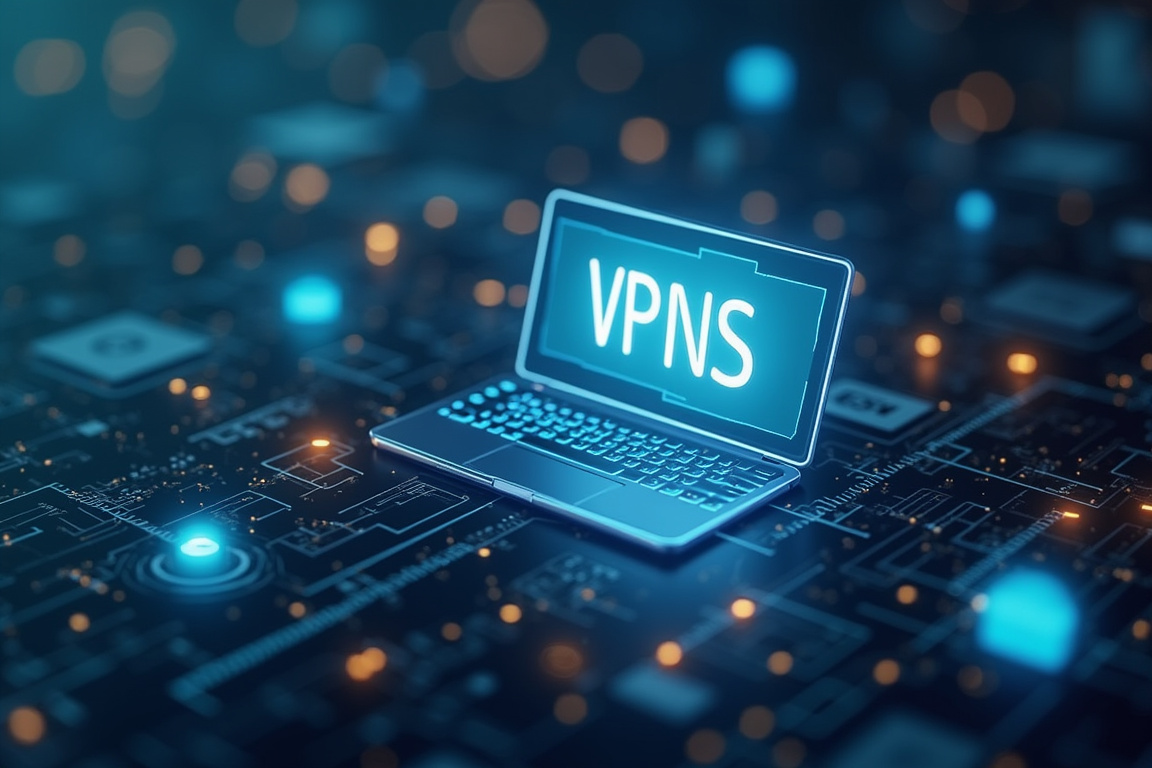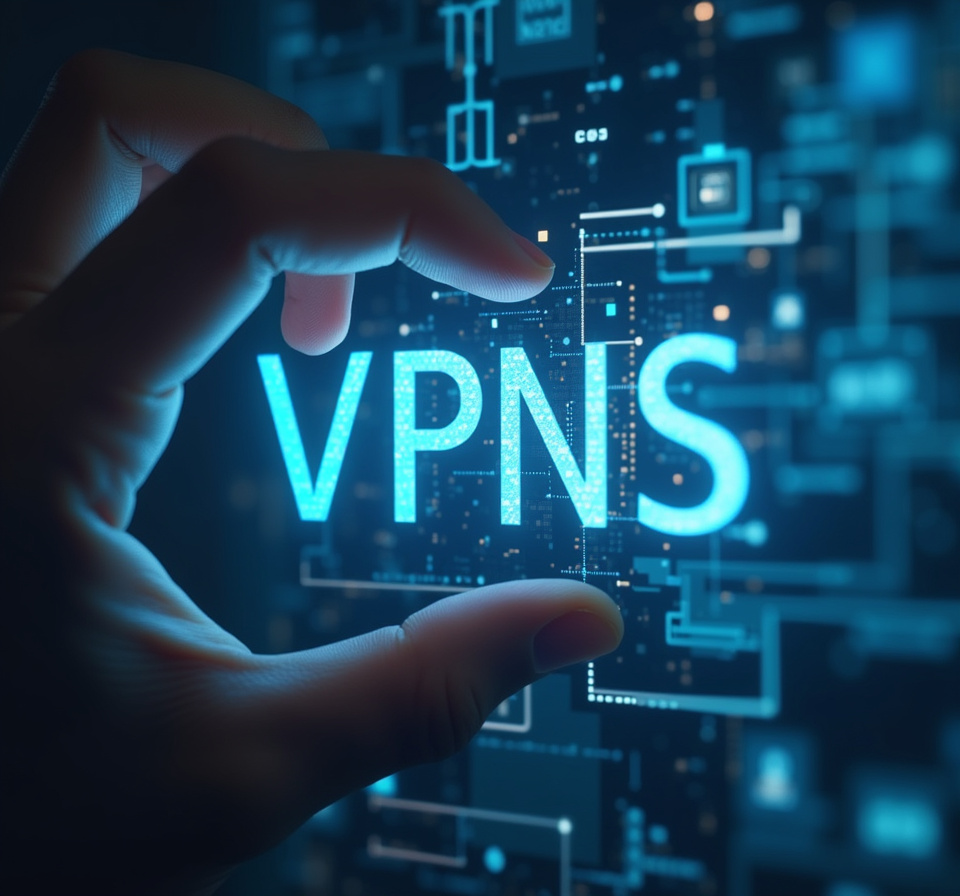How VPNs Combat Cyberbullying: Protecting Digital Footprints

Table of Contents
Understanding Cyberbullying: A Digital Threat
In the ever-expanding digital landscape, where our lives are increasingly intertwined with online interactions, the specter of cyberbullying looms large, casting a shadow over the promise of a safe and connected world. This insidious form of harassment, fueled by the anonymity and reach of the internet, can inflict profound emotional and psychological damage on its victims. As traditional boundaries blur and digital footprints become indelible, understanding and countering cyberbullying becomes paramount.
This article delves into the crucial role that Virtual Private Networks (VPNs) can play in this ongoing battle, exploring how these sophisticated tools can empower individuals to protect their online identities, safeguard their personal information, and navigate the digital realm with greater confidence and security. We'll examine the intricate ways in which VPNs can help reduce vulnerability to cyberbullying, focusing on their ability to mask IP addresses, encrypt data, and create a shield of anonymity that can deter potential perpetrators. Beyond the technical aspects, we'll also discuss the importance of responsible VPN usage, the limitations of relying solely on technology, and the broader context of online safety and digital citizenship.
Ultimately, this exploration aims to provide readers with a comprehensive understanding of how VPNs, when used strategically and ethically, can be a powerful weapon in the fight against cyberbullying, contributing to a safer and more respectful online environment for all. The pervasive nature of social media, online gaming, and digital communication has inadvertently created fertile ground for cyberbullying to thrive. The anonymity afforded by the internet, while offering certain benefits for free speech and expression, can also embolden individuals to engage in harassing or abusive behavior without fear of immediate repercussions.
This distance and lack of face-to-face interaction can often desensitize perpetrators to the real-world consequences of their actions, leading to a cycle of escalating online aggression. Moreover, the viral nature of online content can amplify the impact of cyberbullying, as hurtful messages, images, or videos can be rapidly disseminated across networks, reaching a vast audience and causing lasting damage to the victim's reputation and self-esteem. Recognizing the profound and far-reaching effects of cyberbullying is the first step towards implementing effective prevention and intervention strategies.
These strategies must encompass a multi-pronged approach, addressing both the technological and behavioral aspects of the issue. Education plays a critical role, empowering individuals with the knowledge and skills to identify, prevent, and respond to cyberbullying incidents. This includes teaching responsible online behavior, promoting empathy and respect for others, and fostering a culture of digital citizenship where online interactions are guided by ethical principles.
Furthermore, victims of cyberbullying need access to resources and support systems that can provide emotional support, guidance, and legal recourse when necessary. Technological tools, such as VPNs, can serve as valuable complements to these broader efforts, providing an additional layer of protection against cyberbullying by enhancing online privacy and security. However, it's crucial to remember that technology alone cannot solve the problem of cyberbullying.
It requires a collective effort involving individuals, families, schools, communities, and policymakers to create a safer and more respectful online world. By understanding the complexities of cyberbullying and embracing a holistic approach that combines education, support, and technology, we can work towards empowering individuals to navigate the digital landscape with greater resilience and confidence.
The Role of VPNs in Masking IP Addresses and Location
A digital footprint, in its most basic definition, is the collective data trail each individual leaves behind while navigating the online world. Encompassing every website visited, social media post shared, online purchase made, email sent, and forum commented on, it paints a comprehensive, often detailed, picture of one's online activities and, by extension, their preferences, interests, and even personal life. Understanding the significance of this footprint, especially in the context of VPN cyberbullying, is paramount for safeguarding oneself from online harassment and maintaining control over one's online narrative.
A larger, more readily accessible digital footprint offers malicious actors, including cyberbullies, a greater attack surface. Information gleaned from various sources can be pieced together to identify individuals, track their movements, and craft targeted harassment campaigns. Stolen information could also be used to impersonate someone and inflict damage on their reputation.
Consequently, minimizing one's digital footprint becomes a crucial proactive measure for enhancing online safety and resilience against cyber threats. VPNs can play a vital role in reducing the visibility and vulnerability of your digital footprint by obfuscating your IP address and encrypting your internet traffic. When you connect to a VPN server, your actual IP address, which can reveal your approximate location and identify your internet service provider, is replaced with the IP address of the VPN server.
This masks your true location and makes it significantly more difficult for websites, online services, and potential cyberbullies to track your online activities back to you. Furthermore, the encryption provided by VPNs scrambles your data as it travels across the internet, rendering it unreadable to anyone attempting to eavesdrop or intercept your communications. While VPNs offer significant protection, it is essential to recognize that they do not completely erase your digital shadow.
Information you willingly share online, such as posts on social media platforms, comments in online forums, and registration details on websites, remains visible to the public, and potentially to cyberbullies. Therefore, responsible online behavior and mindful data management are crucial components of a comprehensive strategy for minimizing your digital footprint. Beyond utilising VPNs, there are several additional steps individuals can take to proactively minimize their digital presence and strengthen their online security.
Utilizing strong, unique passwords for each online account is paramount, preventing unauthorized access and potential data breaches. Being circumspect about clicking on suspicious links or downloading files from untrusted sources mitigates the risk of malware infection and data theft. Regularly reviewing and adjusting privacy settings on social media platforms and other online services allows users to control what information is shared publicly and with whom.
Furthermore, individuals should be aware of the data collection practices of websites and online services they use, and actively opt out of data tracking and targeted advertising whenever possible. Employing privacy-focused search engines that do not track search queries further reduces your digital footprint. Taking a proactive, multifaceted approach to managing your digital footprint empowers you to reclaim control over your online identity and significantly reduce your vulnerability to VPN cyberbullying and other digital threats.
Moreover, fostering a culture of digital literacy and online safety awareness among friends, family, and the broader community is vital for creating a safer online environment for everyone. This includes educating individuals about the risks of oversharing personal information online, the importance of responsible online communication, and the resources available for reporting and addressing cyberbullying incidents.
Securing Online Communications: Encryption and Privacy
Online safety is not merely a technical consideration; it represents a multifaceted approach encompassing practices, precautions, and tools meticulously designed to shield individuals from the ever-evolving spectrum of online hazards. This holistic viewpoint includes protection against malicious software, phishing schemes, identity theft, intrusive surveillance, and, crucially, VPN cyberbullying incidents. Within the context of VPN cyberbullying, online safety pivots on employing strategies that actively minimize the risk of being targeted, harassed, or exploited within the digital realm.
This necessitates safeguarding personal information, practicing mindful online interactions, and strategically utilizing technological instruments to fortify one's privacy and security posture. VPNs constitute a potent tool within this arsenal, contributing significantly to overall online safety by constructing an additional layer of defense against the insidious threat of cyberbullying. By strategically masking one's IP address, a unique identifier revealing approximate geographic location, and encrypting data traversing the internet, VPNs substantially impede the ability of cyberbullies to trace, identify, or directly target specific individuals.
The obfuscation provided by a VPN effectively raises the barrier to entry for potential aggressors, deterring opportunistic harassment and making it more challenging to perpetrate targeted campaigns. However, relying solely on a VPN as a panacea for online safety is a flawed approach. A comprehensive online safety strategy demands complementary layers of protection, combining technological solutions with responsible online conduct and proactive risk mitigation measures.
This integrated approach begins with the fundamental practice of employing strong, complex, and unique passwords for every online account. This reduces the potential impact of a data breach, wherein a single compromised password could grant access to multiple accounts, exposing sensitive information to malicious actors. Exercising prudence when encountering and interacting with suspicious links or attachments is equally vital.
Cyberbullies and other online predators often employ phishing tactics, deploying deceptive emails or messages designed to trick individuals into divulging personal information or installing malware that could compromise their devices and expose their data. Regularly scrutinizing and adjusting privacy settings across diverse social media platforms and online services empowers individuals to exert greater control over the personal information they share publicly. Limiting the visibility of sensitive data, such as contact information, location details, and social connections, reduces the potential for this information to be exploited by cyberbullies or used to facilitate targeted harassment.
Furthermore, it is crucial to remain cognizant of the data collection practices employed by websites and online services. Many platforms track user activity, compiling detailed profiles that can be used for targeted advertising or, in the wrong hands, for malicious purposes. Actively opting out of data tracking and targeted advertising, whenever feasible, minimizes the extent to which personal data is collected and shared.
Beyond technical safeguards, fostering responsible online behavior is paramount. Maintaining a respectful and civil tone in online interactions, proactively avoiding inflammatory debates or arguments, and promptly reporting any instances of cyberbullying or harassment all contribute to a safer online environment for everyone. Cultivating a critical awareness of the potential risks associated with sharing personal information online, and exercising caution when interacting with unfamiliar individuals, are crucial aspects of responsible digital citizenship.
Empowering individuals with the knowledge and skills to navigate the digital landscape safely, responsibly, and ethically is essential for creating a truly secure and inclusive online environment. This ongoing effort necessitates educating children, teenagers, and adults alike about the dangers of cyberbullying, the importance of privacy, and the tools and strategies available for protecting themselves from online harm. By fostering a culture of digital literacy and responsible online conduct, we can collectively mitigate the risks of cyberbullying and create a safer, more respectful online world for all.
VPNs as a Tool for Documenting and Reporting Cyberbullying
Anonymity, in the context of online interactions, is a nuanced and frequently misunderstood concept. While complete and absolute anonymity on the internet is arguably an unattainable ideal due to inherent technical limitations and the tracking capabilities of various online entities, VPNs offer a valuable and significant degree of increased anonymity by strategically masking your IP address and encrypting your internet traffic. This enhanced anonymity can serve as a powerful deterrent and protective measure against VPN cyberbullying tactics.
By obscuring your true IP address and replacing it with one associated with the VPN server, you effectively conceal your approximate geographic location and prevent websites, online services, and potential aggressors from directly linking your online activities to your physical identity. This makes it substantially more challenging for cyberbullies to track your online movements, gather personal information about you, and target you with harassment based on your location or internet service provider. Furthermore, the encryption provided by VPNs scrambles the data you send and receive online, rendering it unreadable to any unauthorized third parties who might attempt to intercept your communications.
This prevents cyberbullies from eavesdropping on your online activities, stealing your personal information, or using your data against you. While VPNs significantly enhance anonymity, it's crucial to understand their limitations and the factors that can compromise your online privacy, even when using a VPN. For example, if you voluntarily disclose personal information while using a VPN, such as registering for an online service with your real name and email address, that information is still traceable back to you, regardless of the VPN's encryption.
Similarly, if you use the same online accounts and services both with and without a VPN, your online activities can still be linked together, compromising your anonymity. Browser fingerprinting, a sophisticated technique used by websites to identify and track users based on unique characteristics of their browser and device configurations, can also potentially circumvent the anonymity provided by a VPN. To maximize your online anonymity while using a VPN, it's essential to adopt a comprehensive approach that includes several best practices.
Avoid logging into personal accounts, such as email or social media, while connected to the VPN. Use a separate, anonymous email address specifically for activities where anonymity is paramount. Disable location services on your devices and browsers to prevent location tracking.
Clear your browser cookies and cache regularly to remove tracking data. Use a privacy-focused browser, such as Tor or Brave, which are designed to minimize browser fingerprinting. Consider using a virtual machine or a separate user account for high-risk activities that require maximum anonymity.
Furthermore, it's crucial to choose a reputable VPN provider that has a strong commitment to privacy and security. Research the VPN provider's logging policy to ensure that they do not collect or store your browsing history, IP address, or other personally identifiable information. Look for VPN providers that have been independently audited by third-party security firms to verify their privacy claims.
Avoid free VPNs, as they often rely on advertising or data harvesting to generate revenue, which can compromise your anonymity and security. Finally, remember that anonymity is not a shield against accountability. While VPNs can help protect your privacy and security online, they should not be used to engage in illegal or unethical activities.
Cyberbullying, harassment, and other forms of online abuse are never acceptable, regardless of whether you are using a VPN or not. By using VPNs responsibly and ethically, you can enhance your online anonymity and protect yourself from cyberbullying, while still respecting the rights and privacy of others.
Cyber protection, often used interchangeably with cybersecurity or digital security, represents a comprehensive and proactive strategy designed to safeguard individuals, organizations, and systems from the broad spectrum of threats lurking within the digital environment. This proactive stance necessitates a layered approach, encompassing preventative measures, detective capabilities, and responsive actions meticulously orchestrated to mitigate risks, minimize vulnerabilities, and ensure the confidentiality, integrity, and availability of data and resources. In the specific context of VPN cyberbullying, cyber protection transcends simple defense mechanisms; it embodies a holistic framework designed to empower individuals to navigate the online world with confidence, resilience, and control over their digital identities and experiences.
This necessitates a fusion of technological tools, informed decision-making, and responsible online behavior, all working in concert to create a robust shield against online harassment and abuse. Understanding the threat landscape is paramount to effective cyber protection. Cyberbullies employ a wide arsenal of tactics, ranging from direct harassment and personal attacks to impersonation, doxing (revealing personal information), and the spread of malicious rumors or images.
Recognizing these tactics and understanding how they are deployed enables individuals to anticipate potential threats and take appropriate preventative measures. VPNs play a crucial role in a comprehensive cyber protection strategy by providing critical layers of defense against various cyberbullying techniques. By masking your IP address and encrypting your internet traffic, VPNs effectively prevent cyberbullies from directly identifying your location, intercepting your communications, or monitoring your online activities.
This significantly reduces your vulnerability to targeted harassment and doxing attempts. However, relying solely on a VPN is insufficient. Effective cyber protection requires a multi-layered approach that incorporates a range of security tools and practices.
Strong passwords, multi-factor authentication, and up-to-date antivirus software are essential for protecting your accounts and devices from unauthorized access. Regularly reviewing and adjusting your privacy settings on social media platforms and online services allows you to control what information you share publicly and limit your exposure to potential cyberbullies. Enabling privacy features, such as blocking or muting unwanted users, and reporting abusive content or behavior, further empowers you to manage your online interactions and protect yourself from harassment.
Educating yourself about phishing scams and other social engineering tactics is crucial for avoiding falling victim to attempts to steal your personal information or compromise your accounts. Be wary of clicking on suspicious links, opening attachments from unknown senders, or divulging sensitive information in response to unsolicited requests. Staying informed about the latest cyber threats and security best practices is also essential for maintaining effective cyber protection.
Follow reputable security blogs, news outlets, and social media accounts to stay up-to-date on emerging threats and learn about new tools and techniques for protecting yourself online. Cultivating a culture of cyber awareness and responsibility is crucial for creating a safer online environment for everyone. Encourage friends, family members, and colleagues to adopt sound security practices and report any instances of cyberbullying or online harassment they encounter.
Supporting organizations and initiatives that promote online safety and digital literacy further contributes to a more secure and inclusive online world. Finally, remember that cyber protection is an ongoing process, not a one-time fix. The digital threat landscape
Stay Updated
Get the latest VPN news, tips, and exclusive deals to your inbox.




